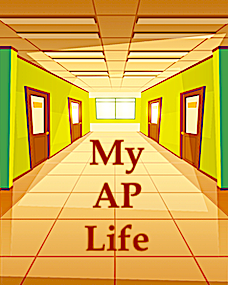3 Leadership Moves Help Grow Mutual Respect
A MiddleWeb Blog

According to the poster, a teacher at their school was consistently late for work and was refusing to display a focus board for students that included the standard being taught, a learning target, lesson activities, etc. Apparently, the poster had addressed this with the teacher several times without anything changing.
As you might imagine there were many comments, both positive and negative. Several of them questioned the necessity of having a focus board in the first place, especially with all the stress teachers have been under lately (the poster did amend their original posting to state that the focus board was a district and county requirement, not necessarily a school-based requirement).
As I read the comments, I found myself nodding at some, shaking my head at others, and wondering how I could use what I was reading to make me a better Assistant Principal.
A frontal assault on administrators
But I was stopped cold when I began to read one cluster of comments that stemmed from a response to the original poster. In this response, the comment was made that those in administration only go into administration for financial gain and that they are usually ineffective teachers who could not make it in the classroom. The respondent went on to post the following: those that can, teach; those that can’t, go into administration.
I was appalled by this statement (as were many others who read it). I knew how hard I worked as a classroom teacher, and I went into administration not for financial gain but so that I might affect changes in policy – thus influencing the lives of more students than just the 100-150 that came through my classroom door each year.
Of course, I am a realist, and I know that there are some in administration that are simply there because they no longer wish to be in the classroom. The front office takes on a golden hue that entices them to think that life in the front is easy, compared to life in the classroom.
This is not the case. While being in the classroom holds its own challenges, being in administration brings with it a new set of challenges that some (including me) are not necessarily prepared for when they arrive.
Be that as it may, reading that educators only go into administration because they cannot teach really got me thinking. Is this what our teachers think in our schools? Is this what parents think when they see us walking the halls or interacting with their children? And if it is, what can we do to change this perception?
Keys to becoming a better administrator
As I pondered these questions, I was reminded of a professional development group I used to belong to here in Alabama. The two facilitators of the group had been in education for a long time, in many different roles, and I often rely on the sage advice they gave us during meetings as I work to become a better administrator, educator, and person.
While I could just about write a book on all the great insight they have shared over the years, there are three pieces that I have used throughout my time as both an Instructional Coach and an assistant principal.
● First, inspect what you expect.
Just like we would do in the classroom, as administrators we have to set clear expectations and then follow up on those expectations. And when we set an expectation, we need to make sure that our teachers have a clear understanding of what that looks like and sounds like. Giving a set of expectations without clear direction only leads to frustration for all involved.
Additionally, make sure that we are providing meaningful feedback. Not just a “good job,” or in extreme cases, a reprimand. Provide good, meaningful (and actionable) feedback based on your expectations and your observations – the type of feedback that will not only help teachers grow but will also help you forge positive relationships with them, thus growing a positive culture that allows room for risk-taking and learning.
I had a principal of mine tell me once, that while she loved everything I was doing in my classroom, there was always room to grow. She then proceeded to challenge me to find opportunities to grow my professional toolbox by giving me specific examples of areas I could focus on. This pinpoint, meaningful feedback helped me decide the direction I wanted to take in my professional learning (I decided to become a bit more tech savvy).
● Second, be highly visible.
We need to be out and about – visible in the classrooms and hallways, talking with students, asking them what they are learning and how they are doing, and showing an interest in their well-being.

Visiting and interacting also helps us provide the meaningful feedback that teachers are wanting. An added bonus is that sometimes we are lucky enough to enter a classroom and become a student learning something new, or a co-teacher helping our students grow academically.
Two of the best moves I have implemented over the past few years to help with my visibility are my daily “walk-abouts” and my “office in the hallway.”
Ensuring that I get out and about at different times of the day has helped teachers and students know that I’m elbow deep in the messiness of learning with them.
Having my “office in the hallway” once in a while has helped curb some of the off-tasks behavior we were seeing in the hallways, especially since most have no idea when or where I will be set up during that time. Both of these activities give me the opportunity to talk with students, getting to know them better, while at the same time supporting teachers as needed.
● Third, don’t be led astray by the Good Idea Fairy.
My two PD mentors were well aware that we can all be overwhelmed by the menagerie of good ideas that abound in education. As administrators, it is our duty to make sure that we are filtering out what will or won’t work for our unique schools. Sometimes a good idea isn’t feasible because our school isn’t ready for that idea. And sometimes a good idea isn’t feasible because we already have too many irons in the proverbial fire.
Many of us get these great ideas from books we’ve read, professional learning events we’ve attended, and even blogs we read or social media groups we belong to. But it is very important that we take some time to truly think about the unique needs of our schools, teachers, and students before we start piling on the next great thing.
Collaborating with a building leadership team that’s made up of teachers and other leaders within the school helps us make sure that anything we decide to take to the whole faculty has the support of several key individuals who will support the implementation. It also helps us make sure that we aren’t overburdening our teachers with one more thing.
Building a culture of mutual respect
While I was very offended by what the respondent originally posted on the discussion I read, I am also thankful to that respondent for saying what they did. Their post allowed me to reflect and re-evaluate my “why” for administration. And while I can understand their frustration (especially if they haven’t had very effective administrators), generalizing a group of people based on a few negative examples is never a good practice.
To help combat some of the negative perceptions that can surround our work, we as administrators need to make sure we are walking the talk, providing actionable and meaningful feedback, looking for opportunities to get to know our students as well as our teachers, and filtering those good ideas we come across so as to not overwhelm our teachers.
While we will never please everyone in our building, practicing these few techniques can help us build a culture of mutual respect and positivity that will help us change minds about what it really means to be an effective administrator.
































Loved this post, DeAnna! You’ve provided sound advice for your readers. I took particular interest in your focus on feedback, a strong area of interest for me as I continue learning. I could add other reasons for your success in each role you’ve assumed in your career – perhaps the most important being your openness to non-stop learning and improvement. You’ve always modeled this! Would love to reconnect.
Thank you so much, Jackie! I learned so much from both you and Cathy Gassenheimer in my time with the Alabama Best Practices Center. As you well know, I love learning new things and always try to look for ways to better myself. If that journey can help others, then it’s just a win-win. :)
Thank you again for the kind words! I would love to reconnect as well. :)
DeAnna, I’m so proud of all that you are doing! Your insights about your role and the way that some may perceive it were both wise and compelling! And, your writing is clear and compelling; I felt as if we were having a conversation. And, your kind words meant a lot!
And, like Jackie, I would love to reconnect.
Thank you for so eloquently putting into words how many of us feel and the approach we take to help make schools a thriving place for both students and teachers. Loved the tips.